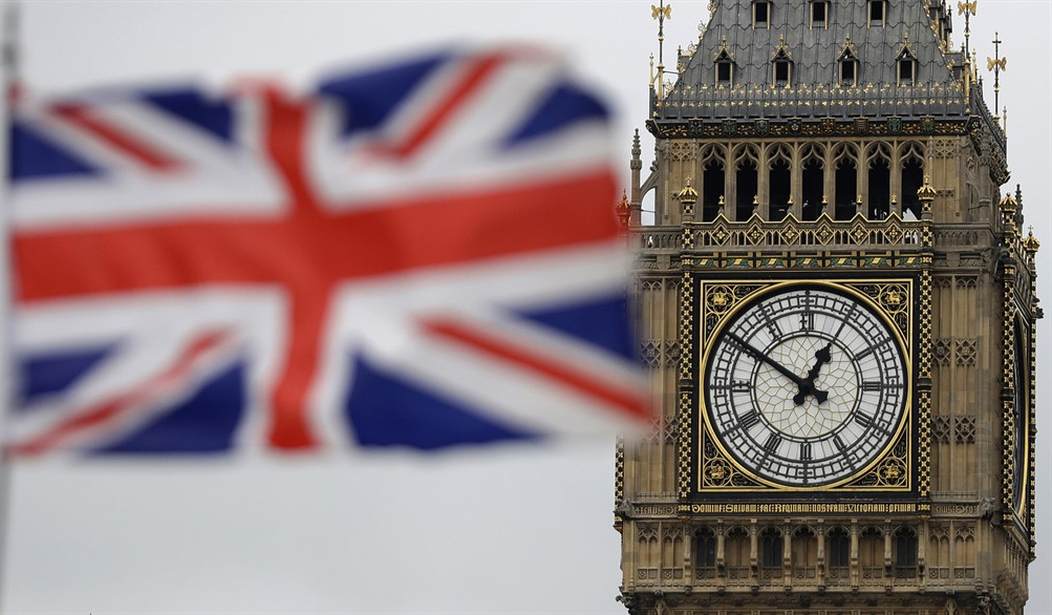A brief trip back to my native Britain the other week was a depressing experience.
There has been widespread rioting in cities across England following the murder of three young girls in Southport at a Taylor Swift dance class.
A large number of Brits, I think it is fair to say, are extremely agitated about uncontrolled (often illegal) immigration. Tens of thousands of migrants have been allowed to flood into the country on small dinghies from France. One in 27 people now living in Britain arrived in the past two years. Four in 10 foreign-born people in Britain have arrived in the past decade.
There is a palpable sense that nothing in Britain runs the way it should, least of all the criminal justice system.
The number of recorded rapes in England and Wales in 2023-24 was three times higher than in 2013-14. A recent investigation discovered that across much of the country, the police had not identified a single suspect for neighborhood crimes over the previous three years. Only a few weeks before the unrest erupted, the authorities announced that even violent offenders would be released from prison after serving a mere 40 percent of their sentences.
Then came the riots, and the authorities suddenly discovered that it is possible to arrest and prosecute criminals after all. Prosecutions that would normally take months to come to court were undertaken within a few days. That, plus the return of British rain, seems to have dampened the spirits of the troublemakers.
Instead of clamping down on immigration, or addressing some of the underlying concerns about Muslim integration (or lack thereof), the authorities seem to find it easier to clamp down on free speech, prosecuting people for obnoxious opinions about either immigrants or Muslims expressed online.
Recommended
The most senior official in charge of public prosecutions in Britain declared that he has a team of “dedicated police officers scouring social media” to arrest people for posting things that are “insulting” or “abusive.” He even threatened to extradite people to the UK for sharing such material online.
All of this has helped contribute to the now widely held idea that Britain has a “two tier” criminal justice system.
Having cheerfully announced that they would be letting violent criminals out of prison after completing less than half their sentences a few weeks before, the authorities now threaten people with jail time for expressing idiotic views. In Cheshire, the police boasted of arresting a woman for what they called “an inaccurate social media post.”
In order to fully understand why Britain is in such a sorry state it is essential to appreciate what has gone wrong with the country’s judiciary.
Mass immigration has become an explosive issue in Britain because judges have routinely thwarted attempts by successive governments to control it. In 2010, 2015, 2017 and 2019, Brits voted repeatedly to end mass immigration. It has not happened because judges have systematically prevented elected governments from controlling the country’s borders.
British judges only ever seem to rule in favor of those who enter the country illegally being able to remain, ruling on the basis of what they think the law should be, not the laws Parliament has passed.
Britain, a once orderly, high-trust society, has become increasingly lawless because judges have routinely failed to apply sentences that ordinary Brits would regard as just. It is so commonplace for violent robbers and rapists to be given community sentences, rather than go to prison, it is seldom even reported anymore.
Why are British judges so awful? Because they are unaccountable to the public.
In Britain, judges are appointed, not elected. Until 2006, at least the appointments were made by an elected minister, meaning there was a degree of democratic oversight.
Since 2006, Britain’s judges have been appointed by the Judicial Appointments Commission, a body obsessed about diversity, equity and inclusion, rather than justice. Thanks to Human Rights law, judges are not merely unaccountable. They regard judicial activism as part of their job.
Liberty and order in Britain are collapsing as a consequence.
At some point, we must all hope that a new Margaret Thatcher emerges in Britain, someone with the vision and principle to save the country from decline. On its current trajectory, Britain is drifting towards the abyss of a sectarian society.
In 2001, there were one and a half million Muslims in Britain. Today there are 4 million. If even a small percentage of British Muslims adhere to the Islamist teachings of Sayed Qtub, the country has a massive problem. Far from addressing the problem, right now Britain is a country cannot even talk about the fact that it might have a problem.
Any new Thatcher must, as she did, address an underlying British economic malaise. Thanks to net zero energy policies, extraordinary restrictive regulations, high taxes and excessive public spending, the UK has had remarkably little per capita growth over the past decade.
But far more important than fixing the economy, Britain needs a state machinery capable of addressing issues of culture and cohesion. Old assumptions, and long established precedents governing citizenship, will need to change.
For that to happen, the next Thatcher needs to recognize that much of the machinery of the British state is dysfunctional. Reform is overdue.
Judges need to come under some sort of democratic oversight. Senior civil servants must no longer be afforded the luxury of deciding whether to implement policies that clash with their preferences. Those elected to Parliament, not unelected officials, need to be able to decide if the country can afford to cut taxes.
Britain can only be pulled back from the brink by a leader that recognizes that it is time to treat the judiciary and the administrative state as Thatcher once treated the trade unions.
Douglas Carswell is the President and CEO of the Mississippi Center for Public Policy. He was previously a Member of Parliament for 12 years and never lost an election.
























Join the conversation as a VIP Member